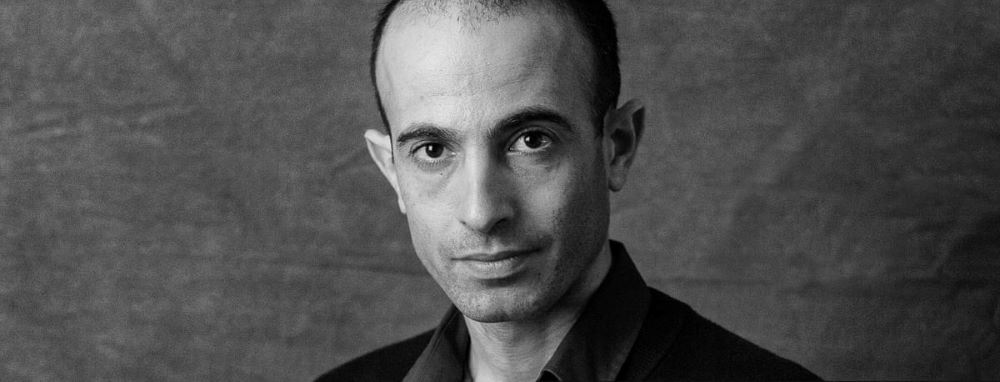Yuval Noah Harari’s book Sapiens: A Brief History if Humankind charts our origins from hunter gatherers 2.5 million years ago on to the rise of Homo Sapiens 200,000 years ago. He takes the reader through the Cognitive Revolution 70,000 years ago, the Agrarian Revolution 10,000 years ago, into the Scientific Revolution in the 1500s, the Industrial Revolution in the late 1700s and on to the present. Harari covers a lot of ground that includes a deep dive into capitalism: “an economic-led system based on private ownership of the means of production and their operation for profit”. He explores how something that began as a theory about how the early economy of the modern age functioned, has grown into much more than an economic doctrine.

Table of Contents
Capitalism as a religion
Harari considers capitalism to be a form of religion, which he defines as “a system of human norms and values that is founded on belief in a superhuman order” (he notes the difference between superhuman and supernatural). That capitalism is a religion is very important because it is only through such a superhuman order that the norms and values that make it binding can be captured. Two further qualities are important in religion. First, it must espouse a universal superhuman order that is true always and everywhere. Second, it must insist on spreading this belief to every one. In other words, it must be universal and missionary.
The greatest conqueror in history?
The next condition of capitalism is one of the greatest conquerors in history: “a conqueror possessed of extreme tolerance and adaptability, thereby turning people into ardent disciples. This conqueror is money”. But money is not just coins or bank notes. “Money is anything that people are willing to use in order to represent systematically the value of other things for the purpose of exchanging goods or services”. Neither does it have to be a material reality – it is a psychological construct that works by converting matter into mind. Harari tells the story of when Hernan Cortes invaded Mexico in 1519. The Aztec natives noticed their extraordinary interest in a certain shiny yellow metal. When they questioned him about the reasons for this interest, he replied: “because I and my companions suffer from a disease of the heart that can only be cured by gold”.
The importance of mutual trust
Why does money succeed? Because it creates a system of mutual trust, and not just any system: “money is the most universal and efficient system of mutual trust ever devised”. Harari suggests taking a dollar bill and looking at it carefully and “you will see that it is simply a colourful piece of paper with the signature of the US secretary of the treasury on one side, and the slogan ‘In God we trust’ on the other”. Universal trust and convertibility is what makes money so powerful. In fact “money is the only trust system created by humans that can bridge almost any cultural gap, and that does not discriminate on the basis of religion, gender, race, age or sexual orientation. Thanks to money, even people who don’t know each other and don’t trust each other can nevertheless cooperate effectively.”
Growth, credit and reinvestment
Money alone is not enough to make capitalism thrive. Three instantly recognisable conditions are also required: growth, credit and reinvestment.
To understand modern economic history, you really need to understand just a single word. The word is growth. For better or worse, in sickness and in health, the modern economy has been growing like a hormone-soused teenager. It eats up everything it can find and puts on inches faster than you can count.
But this is really a very recent phenomenon.
For most of history the economy stayed much the same size. Yes global production increased, but this was due mostly to demographic expansion and the settlement of new lands. Per capita production remained static but all that changed in the modern age. In 1500, global production of goods and services was equal to about $250 billion; today it hovers around $60 trillion. More importantly, in 1500, annual per capita production averaged $550, while today every man, woman and child produces, on the average, $8,800 a year. What accounts for this stupendous growth?
The answer is simple and it takes us back to money and trust, but this time with an additional ingredient added in the form of credit.
We’ve already seen that money is an astounding thing because it can represent myriad different objects and convert anything into almost anything else. However, before the modern era this ability was limited. In most cases, money could represent and convert only things that actually existed in the present. This made it very hard to finance new enterprises… The way out of the trap was discovered only in the modern era, with the appearance of a new system based on trust in the future. In it people agreed to represent imaginary goods – goods that do not exist in the present – with a special kind of money they called ‘credit’. It’s founded on the assumption that our future resources are sure to be far more abundant than our present resources. A host of new and wonderful opportunities open up if we can build things in the present using future income.
It was Adam Smith in his 1776 publication of the Wealth of Nations that identified reinvestment as an additional condition of capitalism. He made the following novel argument:
When a landlord, a weaver or a shoemaker has greater profits than he needs to maintain his own family, he uses the surplus to employ more assistants in order to further increase his profits. The more profits he has, the more assistants he can employ. It follows that an increase in the profits of private entrepreneurs is the basis for the increase in collective wealth and prosperity… Smith’s claim that the selfish urge to increase private profits is the basis for collective wealth is one of the most revolutionary ideas in human history – revolutionary not just from an economic perspective, but even more so from a moral and political perspective. What Smith says is, in fact the greed is good, and that by becoming richer I benefit everybody, not just myself. Egoism is altruism.
A crucial part of the modern capitalist economy was the emergence of a new ethic, according to which profits ought to be reinvested in production. This brings about more profits, which are again reinvested in production, which brings more profits, et cetera ad infinitum.
Harari does an excellent job of analysing the past but he can’t predict the future. It’s challenging times for the global economy and future of capitalism; who knows what the future holds?
I’m Richard Hughes-Jones, an Executive Coach to CEOs and senior technology leaders.
My clients are transitional founders, CEOs and executives in high-growth technology businesses, the investment industry and progressive corporates.
Having often already mastered the technical aspects of their craft, I help my clients navigate the complex adaptive challenges associated with executive-level leadership and growth.
I’m based in London and coach internationally. Find out more about my Executive Coaching services and get in touch if you’d like to explore working together.

